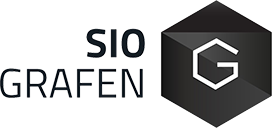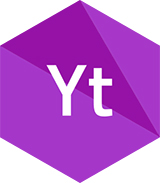Grafenbeläggningar för avancerade textilmaterial
Syfte och mål
Användningen av grafen i textilmaterial är ett koncept som har tagit fart inom akademisk forskning med starkt fokus på e-textilier. Ändå har detta inte resulterat i produkter på marknaden. I bästa fall har det förblivit attraktiva tekniska försök. En av anledningarna, förutom kostnaden, är bristen på kunskap om sättet att applicera grafen på textil på ett effektivt och kostnadseffektivt sätt, anpassat till behoven hos en modern industri som den svenska textilindustrin. Ett potentiellt sätt att lösa problemet är att titta på grafenbeläggningar för att införa ytegenskaper på textil, till exempel UV-beständighet eller avancerad kontrollerad fukttransport för att skapa alternativ till befintliga produkter.
Potential: Textilindustrin strävar ständigt efter nya ytbehandlingar eftersom det är ett generiskt sätt att kunna förbättra egenskaperna. Planen är att börja påvisa konceptet för high-end-produkter för att senare utnyttja kunskaperna generellt (i högvolymsprodukter).
Genomförande: Den vattenbaserade grafentextilbeläggningen kommer att formuleras för att appliceras med traditionella metoder, såsom impregnering, såväl som genom kommande teknik, som besprutning eller bläckstråletryck. Huvudutmaningen är att identifiera de mest lämpliga depositionsmetoderna för att uppnå de önskade egenskaperna.
Aktörer: Projektet kommer att utföras i samarbete mellan tre aktörer. FOV Fabrics är ledande inom högteknologiska textilier i Sverige och har expertis inom textilrelaterad teknik och inom vad som krävs för att kunna introducera grafenbaserade beläggningar i textilier i industriell skala. Chalmers Industriteknik har generell grafenkunskap och kommer att undersöka IP-frågor samt andra kommersiella- och spridningsaspekter. Applied Chemistry på Chalmers har kompetens inom formulering, och kommer att fokusera på våtformulering för deponering av grafen på textil genom användning av t.ex. bläckstråletryck.
Resultat
Projektet syftade till att undersöka den potentiella användningen av grafen i textilier. Vattenbaserad grafen-ytbeläggning på textil har formulerats för att appliceras med hjälp av traditionella sätt, såsom impregnering, samt genom mer hållbara tillvägagångssätt som sprayning.
Reduktionen av den grafenoxid som användes i formuleringen utfördes på flera sätt, inklusive termisk och kemisk reduktion. De behandlade textilierna testades för UV-resistans, jordresistans, ledningsförmåga, avancerad kontrollerad fukttransport eller brandskydd. Projektet hade en undersökande karaktär och de erhållna resultaten har gjort det möjligt för parterna att öka sin kunskap om denna teknik. De utvalda depositionsmetoderna har visat sig vara effektiva och kompatibla med nuvarande textilproduktionssätt. En av de viktigaste flaskhalsarna som identifierades var beläggningens vidhäftighet på textilen, när den testades för nötningsbeständighet. Ytterligare undersökningar måste genomföras i denna fråga.
Sammanfattningsvis har det här projektet också kunnat bestämma de kommande stegen i det framtida införandet av grafen i textilier, som inleds med att fastställa de mest intressanta egenskaperna som kan fås genom att introducera grafen som textilytbeläggning.

